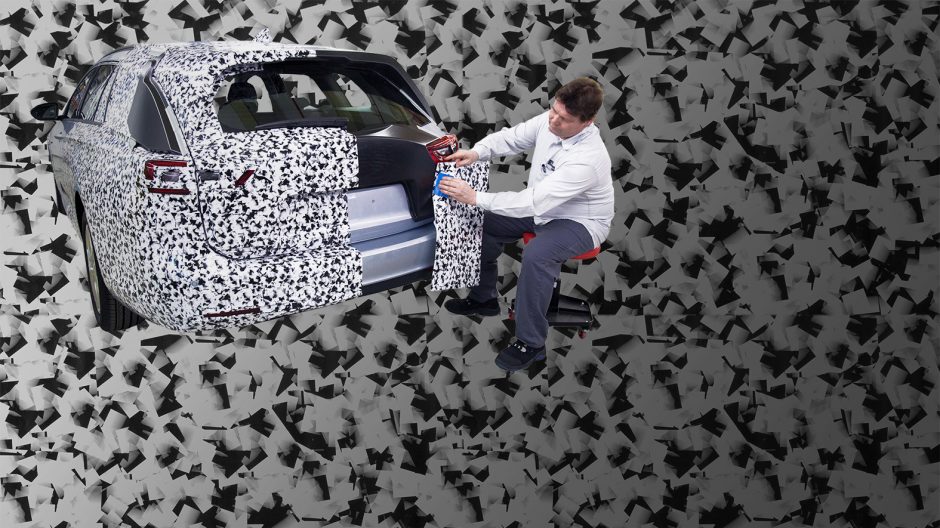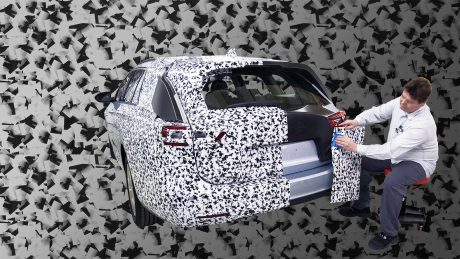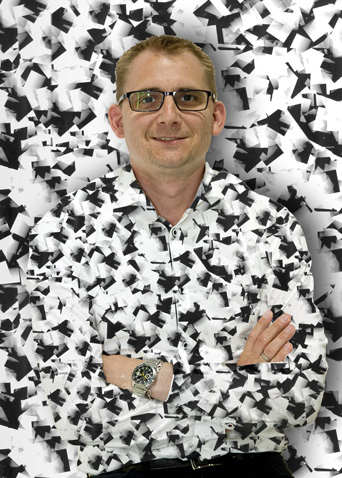– Andreas Kubis –
Technical Specialist Camouflage
The photographers hunting for glimpses of new vehicles, the archenemies of this troop of camouflage specialists, are constantly honing their skills in craftiness in the digital age. It places the eight members of the camouflage team and camouflage specialist Andreas Kubis on high alert in order to keep the prototype development under wraps, so to speak.
“The new Insignia has been our trickiest job to date”, comments Kubis.
Why? It was no easy task to conceal the characteristic bevels on the sides of Opel’s flagship vehicle. It was also a challenge to keep the second ‘wing’ of the LED matrix light from the public and the competition as long as possible and necessary. It’s due to the fact that the daytime running lights are located right next to the blinkers. “We had to work long and hard to make sure we abided by road regulations while ensuring the camouflage was effective,” adds Kubis, who has been with Opel since 1995.
![]()
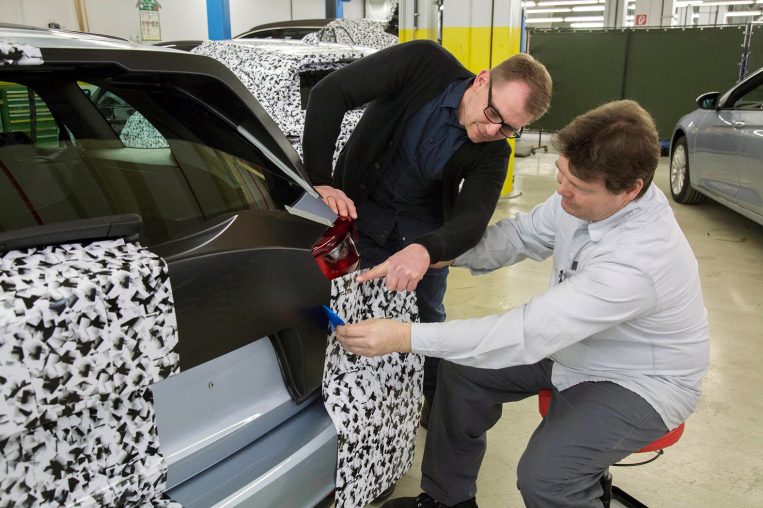
Precision job It can take up to two days to finish a one camouflage. Klaus Leitermann (right) is wokring on an Insignia Sports Tourer with Andreas Kubis (left) looking over his shoulder.
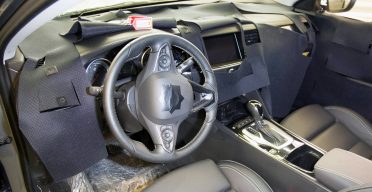
Interior Air-permeable fabric helps to protect the car’s interior from curious glances.
––––
Nowadays experienced pros
will fly a drone over the test track.
––––
The camouflage team attached a dozen plastic parts to the chassis of the second generation of the Insignia while it was still in the early stages of development. The extra parts were meant to conceal the actual design of the test vehicles. But that wasn’t all. The team had to lead people astray with details, like the chrome strip on the rear of the Insignia Sports Tourer, which gives the new car sporty contours, for example. They also used everyday objects like standard-issue pipe insulation from the hardware store or ice cube trays. “There are patterns everywhere. You just need to keep your eyes open,” quips Kubis.
![]()
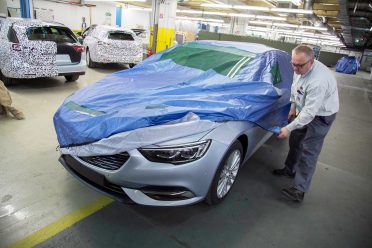
Still hiding The new Insignia Sports Tourer is still not allowed to leave the garage without its camouflage.
![]()
The 3D decals, which Kubis designed himself, were among the high-tech devices used to conceal the new Opel prototypes. ‘Cube’ is the internal code name of the current version, which is also intended to hide the shape of the new Insignia. It ensures that the design lines of the vehicle covered by the decaling will be more difficult to identify. “It makes it trickier for computer software to extrapolate the color elements based on the calculations of the images,” declares Kubis. “Computers are getting more and more powerful so we always need new decal patterns.”
Processing power versus decal patterns
Technological progress provides the team not only with new challenges but also with new possibilities. “Nearly everyone has a smartphone with a high-resolution camera in their pockets. Nowadays experienced pros will fly a drone over the test track, even,” Kubis remarks. Social media helps quickly propagate news in our digital world, meaning that the camouflage team will gradually have more work in store for it. “We have to keep on our toes.”
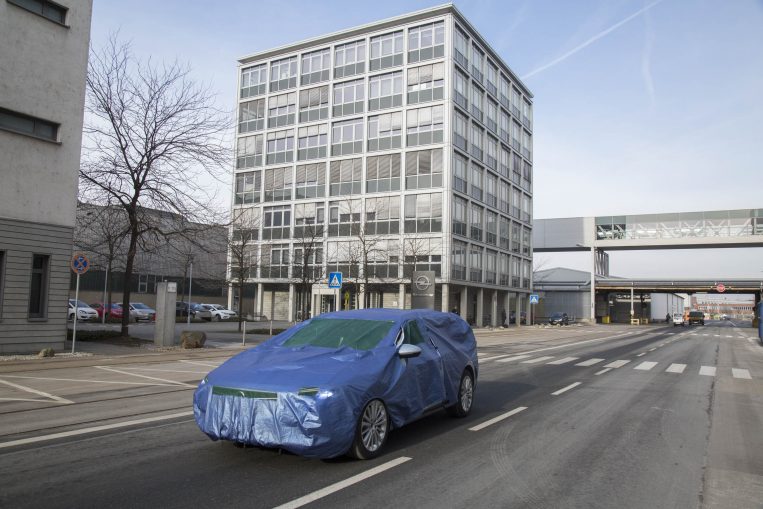
Boiler suit The tarpaulin/canvas protects the carnish/finish.
The sheer numbers of vehicles that needed to be camouflaged was a challenge on its own. There were 500 prototypes of the new Insignia that Kubis and his team needed to conceal in K40 on plant grounds during the development stage – more than any other production launch before it. And it can take up to two days to camouflage a vehicle. For the new Insignia, the team needed 110 sheets of decals measuring 60 x 40 cm each to completely cover one car.
Never before have there been this many camouflaged vehicles
Kubis’ job is far from being finished once this tricky project is concluded and pictures of the Insignia Sports Tourer are released. Opel is in the middle of its largest model campaign in the company’s history: Seven new models will be released just this year, with a total of 29 between 2016 and 2020. The camouflage team at Opel is also embarking on an exciting journey.

Out of the way The Insignia Sports Tourer has finally put off the camouflage. Now, the characteristic Opel blade of the lower door area is allowed to present its full beauty.
